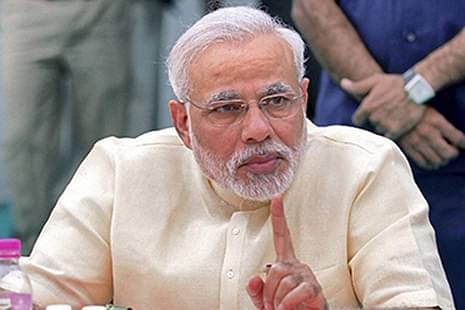
The PM Narendra Modi called on the scientists during the 103rd edition of the Indian Science Congress in Mysore and motivated them to keep the equity, empathy, economy, energy, and environment as the base of their endeavors.
“The impact of science will be the most when scientists and technologists keep the principles of what I call Five Es at the center of their inquiry and engineering,’’ said P.M Modi while interacting with the delegates who came from the different universities spread all across India.
The scientists are needed to find more efficient solutions that are also cost-effective, “ensure our carbon footprint is the lightest” focus on energy since prosperity depends on green energy, display empathy by ensuring “efforts are in tune with our culture, circumstances, and social challenges” and create equity where “science advances inclusive development and improves the welfare of the weakest”, the PM said.
Earlier, there were controversies generated during the 102nd Science Congress owing to purported ancient Indian scientific knowledge. PM Modi spoke exclusively regarding the use of science to keep a control over issues regarding climate changes and the global understanding. But he pressurized that the traditional must not be ignored while following the new knowledge. “If we wish to restore the harmony between human and nature we must also harness the full potential of traditional knowledge. Societies across the world have developed this enormous wealth through wisdom gathered over the ages. They hold the secrets to economic, efficient, and, environment-friendly solutions to many of our problems. But today they are at risk of extinction in our globalized world,” he added. He further stressed that “In the area of health, modern medicines have transformed healthcare. But we must also use scientific techniques and methods to delve deeper into traditional medicines and practices like yoga for more holistic lifestyle and change our paradigm from treatment to wellness,”
The Prime Minister further implied to the completion of a century since Albert Einstein proposed the general theory of relativity. Mr. Modi also quoted the scientist’s call for humanism to be the core of science.“This year we mark a hundred years of a significant moment in the history of science when Albert Einstein published in 1916 ‘The Foundation of the General Theory of Relativity’. Today, we must recall the humanism that defined his thought: Concern for man himself and his fate must always form the chief interest of all technical endeavors,” he said.
“For me, good governance is not just about policy and decision-making, transparency and accountability. It is also about integrating science and technology into the choices we make and the strategies we pursue. We will try to increase the level of resources for science, and deploy them in accordance with our strategic priorities. We will make it easier to do science and research in India, improve science administration, and expand the supply and improve the quality of science education and research in India,” he pointed.
Among the key challenges that were present apart from climate change, was urbanization that was quite rapid. The Union Minister for Science and Technology Harsh Vardhan stated that he would avoid talking about the history of science in India, as he did at the 2015 conference. This was due to the fact that his statements regarding the antiquity linked with the Pythagoras theorem attracted more attention as compared to the conference itself.


 Follow us
Follow us













